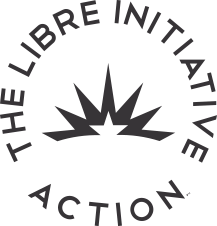DES MOINES, Iowa – Americans for Prosperity Action (AFP Action) today announced its endorsement of two candidates, Iowa state Sen. Zach Nunn (IA-03) and Rep. Mariannette Miller-Meeks (IA-01), vying for the U.S. House of Representatives. These candidates have shown active leadership on key issues and if elected and re-elected, will work to build broad-based policy coalitions to break barriers standing in the way of individual prosperity.
AFP Action will use a range of tactics, including its signature grassroots outreach and mobilization, to urge voters to support these candidates’ principled policy solutions to help tackle our nation’s greatest challenges.
AFP Action Senior Advisor Drew Klein said this on Rep. Miller-Meeks:
“Since assuming office in 2021, Representative Miller-Meeks has distinguished herself as a principled leader who puts people over politics. Today, it is even more essential that we have a leader in Washington who will stand up for Iowa families and lead the way toward more economic opportunity, making it easier for businesses to thrive and create jobs. Our activists are excited to hit the ground running to help re-elect Rep. Miller-Meeks to Iowa’s first Congressional district.”
AFP Action Senior Advisor Drew Klein said this on state Sen. Nunn:
“State Senator Nunn is an experienced lawmaker who has earned AFP Action’s support for his dedication to getting Iowa’s economy back on track, reducing regulatory barriers standing in the way of businesses and individuals growing, and reforming our criminal justice system. Sen. Nunn is the leader we need in Washington, and we couldn’t be more excited to throw our full support behind an exceptional candidate.”
Background:
Representative Mariannette Miller-Meeks (IA-01)
Representative Miller-Meeks is committed to strengthening our labor market and growing our economy. She has tirelessly fought for policies that remove needless, job-killing, red-tape and regulations hurting Iowa families and small businesses. In Congress, Miller-Meeks opposed legislation that would have made harmful changes to labor laws and undermine the rights of employees. The legislation would also have overturned state right-to-work laws that protect workers freedom of choice. At the federal level, she is currently a cosponsor of the National Right-to-Work Act. As a state senator, Miller-Meeks fought to install additional protections against the overregulation of occupations, as well as brought more flexibility to retailers adapting during the ongoing pandemic.
Representative Miller-Meeks has a passion for improving the lives of our veterans. In Congress, Rep. Miller-Meeks supported the Veterans’ True Choice Act of 2021, which expands health care access and empowers service-connected veterans to make decisions that best meet their individual health care needs. In addition, she has advocated for increased accountability and removing bureaucracy at the Department of Veterans Affairs following the 2014 scandal that prevented veterans from getting the quality of care they deserved.
Representative Miller-Meeks believes in a criminal justice system that should work for all Iowans, and has advocated for smart on crime, soft on taxpayers policies. Miller-Meeks is a vocal and active supporter of restoring the voting rights of former prisoners following the completion of their sentences. As state senator, she supported expanding employment opportunities for formerly incarcerated individuals through expungement and supported removing burdensome occupation licensing rules that would hinder their reintegration into society. In Congress, Miller-Meeks supported legislation to prohibit the Department of Justice from monitoring certain attorney-client privileged communication.
State Senator Zach Nunn (IA-03)
State Senator Zach Nunn championed smart fiscal policies that lowered taxes for Iowa families and businesses. Zach Nunn is committed to and understands the importance of providing tax relief for Iowa families and small businesses. As state senator, Nunn supported Senate File 634 in 2019, which would require a super majority vote to raise property taxes by more than 2 percent. In 2015, he fought for Iowans to keep more of their hard earned paychecks by opposing a roughly 50 percent increase to the state’s gasoline tax.
Zach Nunn eliminated wasteful government spending, called for a balanced state budget, and increased transparency in how Iowans tax dollars are spent. State Senator Nunn has fought to reduce wasteful spending in Iowa’s state budget. In 2018, he supported legislation instituting smart spending cuts to fix Iowa’s revenue shortfall and maintain a balanced budget. In 2017, he called for an ongoing review system to determine if executive branch projects are being run efficiently and effectively. In 2015, Nunn voted to install a zero-based budgeting system to bring more accountability to the state budget.
Zach Nunn has fought to reform Iowa’s overburdensome criminal justice system and aid rehabilitated former prisoners in their transition back into society. As state senator, Nunn fought to eliminate unnecessary occupational licensing restrictions and barriers that prevented people with certain non-violent convictions from fully reentering society and improving the lives of their families and communities. As a member of the IA House of Representatives, Nunn was the primary sponsor for legislation that reduced mandatory minimums for non-violent drug related crimes, as well as supported civil asset forfeiture reform that set limits on the value of property law enforcement would be able to seize prior to court proceedings.
Zach Nunn fought to reduce burdensome rules and regulations on businesses to better empower workers. Throughout his time as state senator, Nunn voted for legislation that would allow certain businesses to operate in remote locations and supported allowing reciprocity for individuals with out-of-state licenses while also waiving initial fees for those earning less than 200 percent of the federal poverty level.





